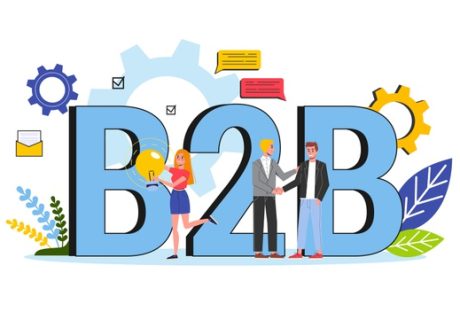The world of today is continuously changing. Each new day brings new challenges and new problems. But, it also comes with unique learning opportunities. Just like the trials of modern business never stop; the same goes for education. The need for constant growth never stems, regardless of where you and your team are. If you are working apart, you can find an all-in-one training platform that can help you stay on top of your game.
No matter how skilled and educated your employees are, it’s certain that they can benefit from additional in-company training. Here are some of the benefits that training can bring to you and your employees.
Improved performance
Let’s start with the essential thing – training brings improved performance and workers’ motivation. According to research, trained employees possess more knowledge and expertise than others. In return, this boosts their job performance and general efficiency of the workplace.
They become more efficient and confident, which saves you valuable resources in the long run.
Boost job satisfaction
As stated above, the workplace of today continually comes with new challenges. And, if the workers aren’t able to adequately respond to those challenges, their morale drops. Also, low morale brings low job satisfaction, which brings confidence even further down, and the whole process becomes a self-sustaining vicious circle.
Here’s research that proves that training sharpens employees’ hard skills, which improves their morale and job satisfaction.
Training prepares employees for more significant responsibilities
Training programs can also help prepare employees who are moving into higher roles and taking on more responsibilities in an organization. These programs will help them learn the skills that are needed to function effectively in their new positions. For instance, they may be trained in leadership skills or specific software they will use in their new role.
Training saves you money
Studies on workforce flow show that it almost takes, on average, roughly eight months for any new hire to reach their full productivity after selecting a new job. During this time, they will not be at the peak of their game, without a solid training program that can fill any knowledge and learning gaps that could be keeping an employee on backfoot. By ensuring that all new employees should have a solid understanding of needed skills and practices sooner rather than later, with the help of proper training you can save a plentiful chunk of money.
Less need for supervision
If the employees get actual scientific training, the responsibility of guidance is lessened also. Training does not eliminate the need for control, but it reduces the need for detailed and constant care.
In turn, this means that the workers become more relaxed and less stressed, which once again means improved productivity and higher worker satisfaction.
Training means fewer accidents
Like with the previous point, it’s worth remembering that errors are likely to occur if the employees lack the knowledge and skills required to do a particular job. The plentiful trained an employee is, the less are the chances of doing disasters in the job, and the more proficient the employee becomes. With fewer setbacks and errors, the entire workplace becomes more comfortable, and that is one more way the overall confidence improves.
It shows employees they are valued
Performing training programs in the workplace will help the employees to feel like the company is investing in them. By teaching your employees new skills and techniques, they will become better workers and feel like more fruitful members. This will develop their moral value as well as their workplace capabilities.
Training is also directly bound to an employee’s commitment levels. Without signs that you consider their development, some individuals no longer feel connected to their responsibility, either cognitively or emotionally, meaning that most will give the bare-minimum work effort. Quality training directly checks this influence.
Training makes it easier to spot valuable workers
When an organization requires a brand new set of skills, it tends to face great employment difficulties. Training can be used in locating out the most promising employees in the workforce. It can also help with eliminating the defects in the selection method. It is always a better way to pick and train the employees from within the company rather than seek skilled employees from external sources.
Training strengthens adherence to the same standards across the board
Every field has its peculiarities and requirements. Most of the time, new hires are not aware of the functioning of the organization. A significant benefit of training employees is that it boosts their attachment with the organization’s quality standards. Simultaneously, it equally strengthens the old workforce’s functioning and abilities, keeping them up to date with potential changes and improvements.
It will improve your company’s reputation
Research from Gallup notes that sixty-six percent of workers are not satisfied with the level of engagement their workplace provides them.
But, if you pay attention to developing your workforce’s skills, expertise, and job satisfaction, people will spread the word. Thus, more competent people will join you. They will enjoy working in an organization where they can learn as well as utilize their abilities to maximize the productivity of the company.
Employee training creates opportunities for internal promotions
The advantages of training and development for an organization are varied. One of the significant beneficial sides of training is for employers to help and fill internal promotion positions. This is a feasible coast beneficial solution, as well, since hiring new talent is an expensive operation. Plus, your present employees are well informed about the organization’s operations and work culture, so they can start working instantly.
Conclusion
As you have seen, quality training can have a direct positive impact on your bottom line.
When your employees are more engaged and productive, profitability will also naturally grow, and by improving recollection rates through training, your company can keep valuable employees by its side.
The general conclusion is that each of the benefits of train your employees won’t just only to improve your daily work advancements and put workers in a better situation to succeed; they will be responsible to set profitable outcomes for the newcomers. Training modules provide the benefit of developing a framework for regular work on employees’ strengths and ensure progress and profits.
Read Also:
- What Are the Ways to Prepare a New Employee?
- How to Create an Effective Company Training Program
- Possible Reasons Why Your Employees Aren’t Too Productive and What to Do About It

























